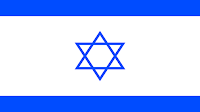What is Easter? The Festival Revelations
From its origins, Christianity has seen a connection between Passover and Resurrection Sunday, commonly known as Easter. At a minimum, Christians acknowledge that Jesus’ suffering, death and resurrection occurred during the Jewish Passover celebration. The Bible clearly tells this story through the lens of the Passover Meal that Jesus had with His closest friends, commonly referred to as the Last Supper. It’s the night that Jesus is handed over to be scourged and crucified; we recall Jesus’ death on Good Friday, called good because He paid the price for our sins on that terrific day, fulfilling the law (Matt 5:17) and demonstrating a divine love.
Did you know however that Passover and Easter were linked from the Israel’s origin? Recall as Abraham was ready to sacrifice his first-born son on Mt. Moriah. Abraham told Isaac that God would provide the sacrifice, most likely not knowing how true his words were. However, it was not Isaac who was sacrificed on that hill; it was Jesus! Many scholars believe that the location of Mt. Moriah is likely Golgotha, where Jesus was crucified.
That theme of the first-born was then carried into the 10th plague in Exodus. This is the origin story of Passover: the angel of death claimed the first-born son from every house except those who had the blood of the sacrificed lamb covering the door frame to their home. Those who remained in the house marked for God were spared, and any first-born who left the home perished. For over 3000 years, God’s protection has been remembered by Jews, yet many have failed to see that this Passover was also prophetic symbology for the Lamb of God whose blood was shed: Jesus’ blood which covers and saves anyone who humbly calls on the name of the Lord. (Joel 2:32, Acts 2:21, Romans 10:13)
The Passover Seder meal is still celebrated in the same fashion today as Jesus did at His Last Supper, and it offers a deeper insight into all that God the Father planned. Celebrating a Messianic Seder meal is eye-opening to both Jew and Christian. (For more information see The Passover). Still, I would say that this only scrapes at the surface. Just as Passover spans many days, so does the Easter Celebration. The full story includes Jesus’ innocence, His faithful obedience despite foreknowledge of His suffering, the physical abuse resulting in His death, the demonstration of victory over death. All this is Easter. It is the proclamation of Peace to a rebellious humanity, the demonstration of how to live rightly, the fulfillment of the Law without reducing the perfect love of God, and the victory over death! In short, the celebration of Easter is the celebration of Jesus and the victory we undeservedly share with Him!
Yet I believe there are still deeper truths to the festivals of Passover and Easter that have been mostly hidden. The Bible informs us that some if not all of the Jewish holidays will be observed during the Millennial reign of the Messiah (e.g. – Zech 14). If these festivals will be a part of our lives in the Millennium, shouldn’t we take time to understand them? And I wonder, is there a futurist context for these festivals? In the same way that Passover was both a celebration of God’s saving power to the Jews as well as a foreshadowing of the saving power of Jesus, could they both be prophetic symbology for Israel’s and Christendom’s future salvation?
There are many different interpretations about how the Jewish festivals correspond with key events in Christianity, and I doubt that any of us will truly understand until Jesus returns. Still, without denying the importance of past events and how these festivals emerged, I would also contend that they are a foreshadowing of what is yet to be. It’s not an “either/or” but rather a “both/and”. It is both the past and the future, a real yet foreshadowing event as well as a wonderfully fulfilled future event.
copyright ©2023 Mitchell Malloy (http://mitchellmalloyblogspot.com/)


